LA2050 Blog
We’ve got access to the information that every Angeleno needs to make an impact. Our blog features the latest LA2050 news, announcements, features, happenings, grantee updates, and more.
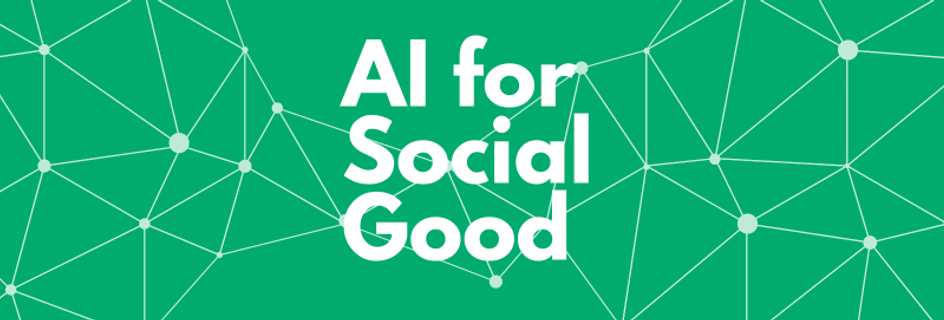
LA2050 Hosts “Artificial Intelligence for Social Good” Workshop
PostedEarlier this month, LA2050 hosted Artificial Intelligence for Social Good, an interactive, half-day workshop focused on offering nonprofits and social impact organizations practical insight into how artificial intelligence (AI) can be leveraged in their work.
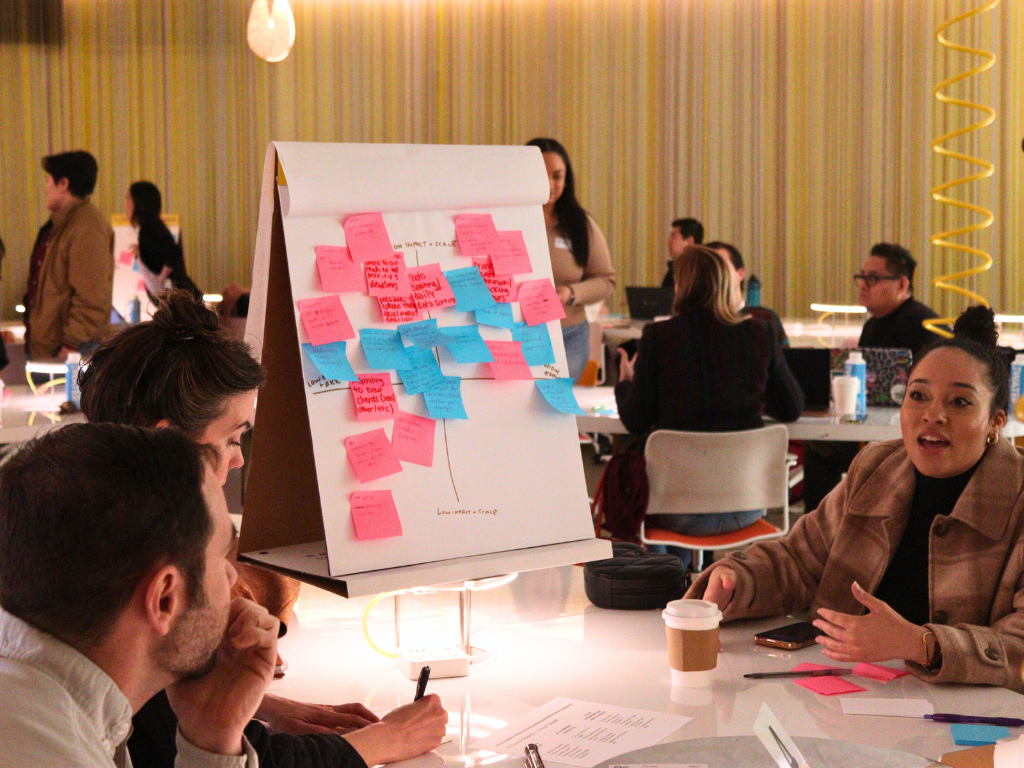
The workshop, held on February 9th, was facilitated by Maria Dyshel of Tangible AI with support from Jen Garcia of Employ California, two experts on AI and its intersection with social impact. Together, they guided our 60+ participants – comprised of LA2050 grantees and partners – through learning about AI possibilities, brainstorming specific ideas for implementation, and gaining confidence in navigating the emerging technology.
We were inspired to host the workshop after diving into the 320 responses to an optional survey about AI we administered last spring, to our 2023 LA2050 Grants Challenge applicants. Those responses revealed that while nonprofits and social impact organizations were eager to understand more about AI, there were more questions than answers.
- About 70 percent of respondents were talking about the implications of AI for their work – both positive and negative. However, just 40 percent had plans to use AI. One nonprofit staff member wrote: “Frankly, I know very little about what positive impact AI can have on our work. Our programs are all about empathy and social-emotional learning and connection.”
- There is a lot of uncertainty around what AI means for the communities that organizations serve; while 44 percent think that the community they serve will benefit from AI, another 44 percent are unsure, and 12 percent do not think that the community they serve will benefit.
- The majority of organizations, 58 percent, believe that they can enhance their impact with the use of AI, but there are still a lot of unknowns. Across the responses, there was a sense of openness: “We are open to any and all things that will help us expand our outreach efforts and help us to uplift our people and the communities we serve.”
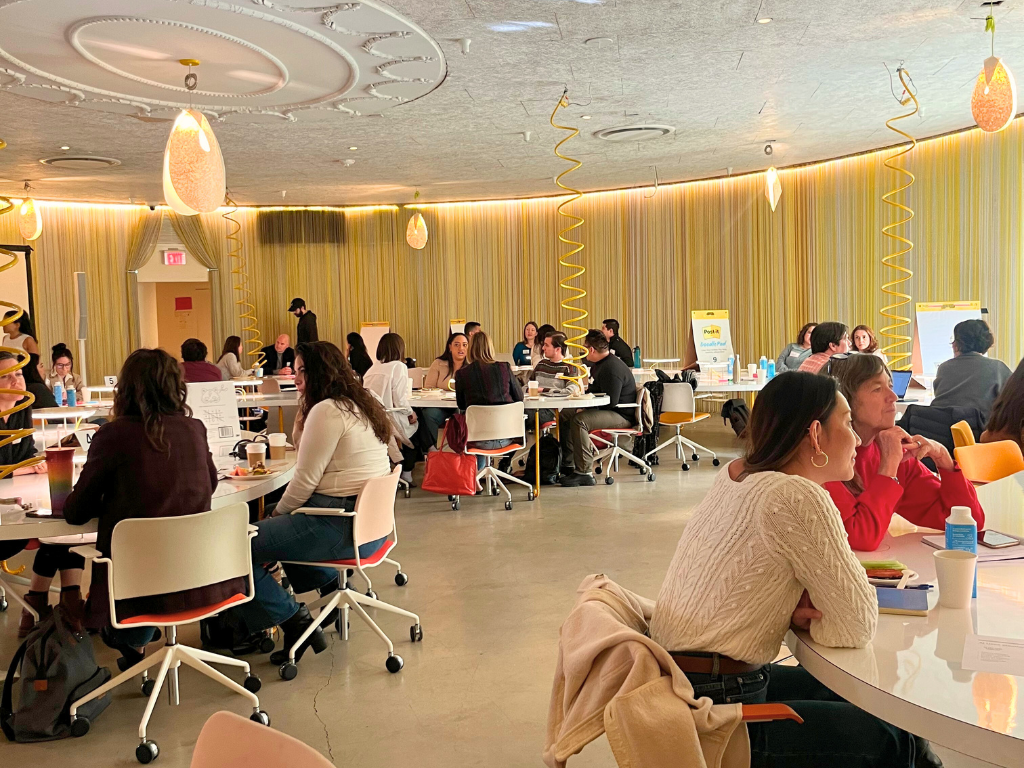
In that spirit, we hosted the February 9th workshop at Second Home Hollywood (now, The Preserve). Here are five key learnings from the workshop that all nonprofit and social impact leaders should know:
1. Using AI can allow us to lean into our humanity.
In her introduction, Maria spoke to some of the most prevalent fears and criticisms surrounding AI. She emphasized that, contrary to popular belief, embracing the technology can actually enhance our humanity. By offloading repetitive and mundane tasks to AI, we can redirect our focus toward what we are best at – creativity, empathy, and strategy. Maria stressed that AI should be viewed not as a replacement for humans, but as a tool that can empower us.
2. How to start with AI? Identify opportunities to amplify, improve, and streamline.
Next, Maria introduced the attendees to a three-part framework for understanding how AI’s possibilities: amplify (more), improve (better), and streamline (faster). Participants transitioned into small groups to brainstorm ideas for how to leverage AI to advance each of those aims. Some of the opportunities identified by participants included: matching mentors to program participants, designing processes for measurement and evaluation, and drafting communications to donors.
3. Evaluate AI ideas by weighing the potential for impact and scale against the risk and effort.
Once the participants brainstormed their AI ideas, Maria walked them through evaluation. She encouraged participants to assess AI ideas by considering their potential for creating impact and being scaled, and weighing that against the risk and effort involved in implementation. Ideas with greater impact and scale and lower effort and risks could be understood as “low-hanging fruit” for more immediate execution. Those ideas with greater impact and scale with higher effort and risks might be considered as future “strategic innovations.”
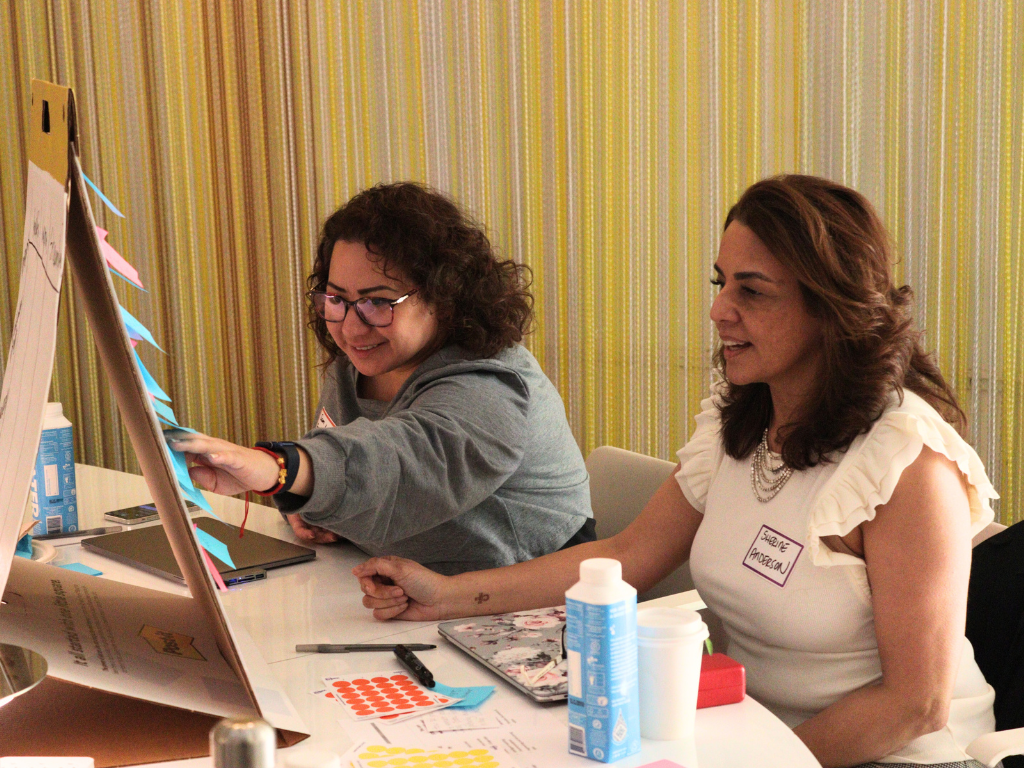
4. It is important to create plans for how to use AI responsibly.
A central theme of the workshop was the importance of responsible use of AI. Maria underscored the importance of considering its ethical implications, including data privacy concerns and the potential for bias. She encouraged participants to begin with drafting a policy for responsible use at their organizations. Some of her other tips for responsible use: keeping humans in the loop, being proactive about the risks, giving your project time to succeed, and testing extensively.
5. Be an AI ambassador!
Maria concluded by prompting participants to become AI ambassadors at their organizations, providing the following tangible calls to action:
- Educate yourself on AI basics and its potential applications
- Experiment with low-stakes use cases to gain hands-on experience
- Engage in conversations with colleagues, sharing your experiences and insights to foster collaboration and understanding
- Address concerns by showcasing opportunities and benefits of AI through real-world examples and case studies
BONUS TIP: When using generative AI assistants, how you prompt is everything.
During the workshop, Jen also offered helpful insight into the importance of crafting effective prompts when using generative AI assistants. She emphasized that high-quality prompts lead to better outputs. To demonstrate, she gave examples of how multi-step, chain-of-thought prompting and clear, well-defined instructions have enabled AI to act as a thought partner and coach to her in her work.
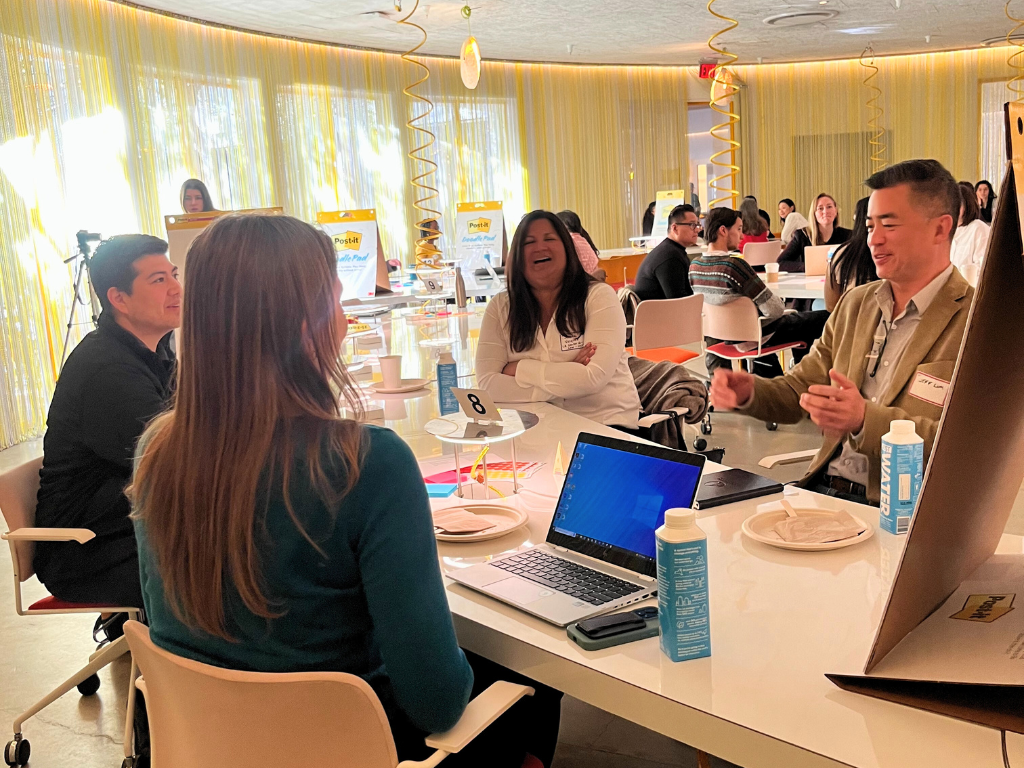
Following the workshop, one attendee noted: “The most valuable thing learned is that AI is continually learning and evolving, but that it is here to stay whether we like it or not. And that what we as nonprofits can do is train ourselves (and others in our sphere, when possible) on its functionalities – along with uses, applications, policies, risks, platforms – in order to see how AI can further our ultimate mission and goal to nurture our communities.”
LA2050 – along with its parent organization, the Goldhirsh Foundation – looks forward to continuing to learn how AI will impact the communities we serve, and how we can harness its possibilities for good.